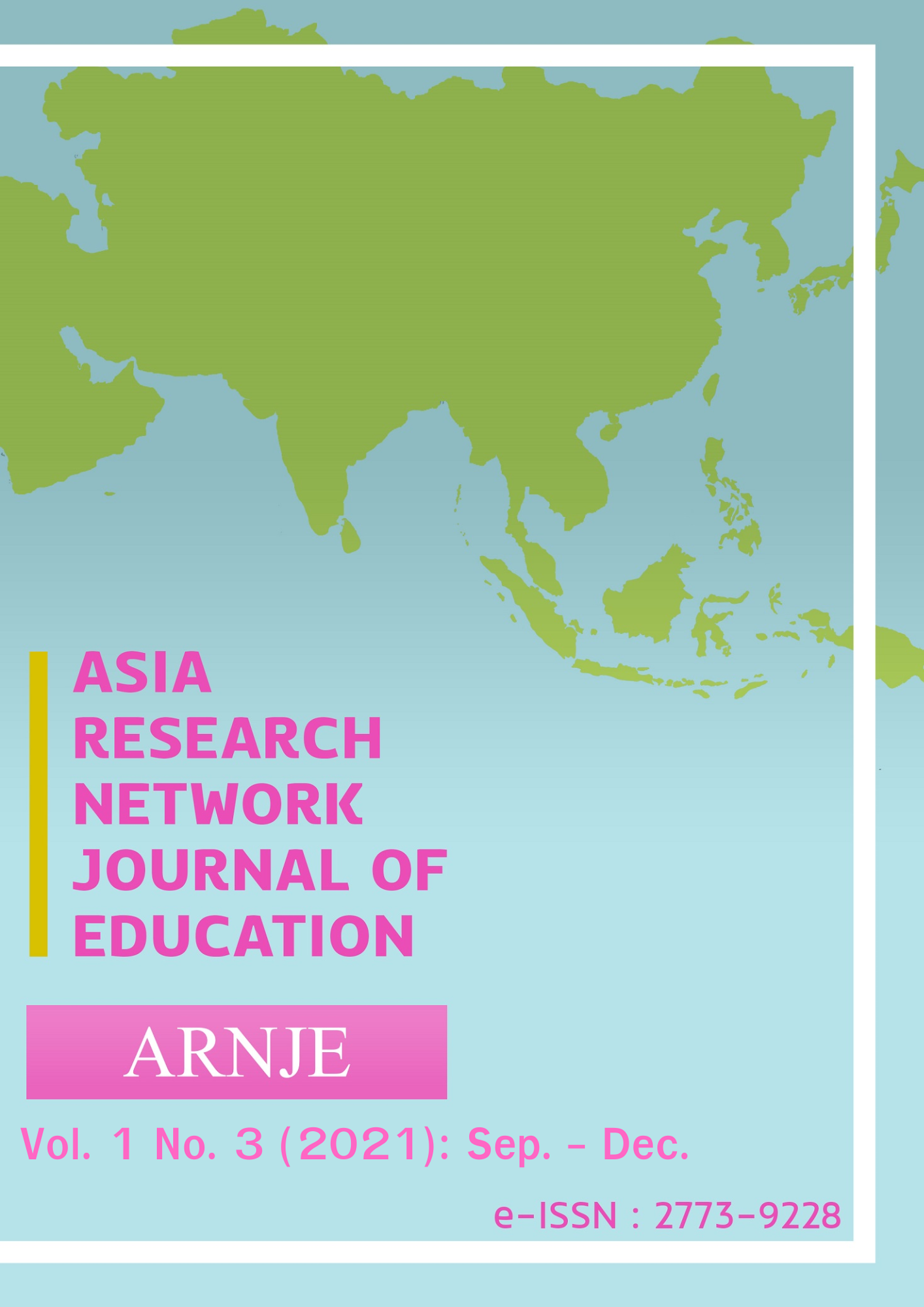Designing and Organising Experiential Learning Activities in Math Teaching at Secondary School in Northwestern Viet Nam
Main Article Content
Abstract
Experiential learning (EL) has always been an appealing research topic among educators. In Viet Nam’s 2018 General Education Program, EL is included as compulsory educational activities with a specific time allowance in every subject. This article presents a procedure to design and organise Experiential learning activities (ELA) in teaching Math at secondary school. The proposed ELA procedure is adapted from David Kolb’s experiential learning cycle with several modifications in accordance with local students’ characteristics. The findings show that learners were capable of constructing the concept of ‘percentage’ through ELA by examining and evaluating local produce prices before and after the Covid-19 pandemic (in Son La province). It is shown that organising realistic ELA promote the initiative and enthusiasm of minority ethnic students in mountainous Northern areas in learning, to eventually construct new math knowledge and develop communicational competencies.
Article Details
Copyright: CC BY-NC-ND 4.0
References
Andrea E. Weinberg, Carole G. Basile & Leonard Albright (2011). The Effect of an Experiential Learning Program on Middle School Students’ Motivation Toward Mathematics and Science, RMLE Online, 35:3, 1-12. https://doi.org/10.1080/19404476.2011.11462086.
Anh Kien (2021). Results of the high school graduation exam in 2021 in the Northwest provinces: Lao Cai leads. VOV. https://vov.vn/xa-hoi/tin-24h/ket-qua-thi-tot-nghiep-thpt-nam-2021-o-cac-tinh-tay-bac-lao-cai-dan-dau-877197.vov.
Bui, T. T. T. & Vu, Q. K. (2017). Design and organize experiential activities in teaching natural sciences and mathematics in lower secondary schools. Journal of Education, special issue, No. 2, October 10/2017, 145-148. https://tapchigiaoduc.moet.gov.vn/vi/magazine/so-dac-biet-ki-ii-thang-10/38-thiet-ke-va-to-chuc-hoat-dong-trai-nghiem-trong-day-hoc-cac-mon-khoa-hoc-tu-nhien-va-toan-hoc-o-trung-hoc-co-so-5561.html.
Kolb, D. (2015). Experiential Learning: experience as the source of learning and development. Englewood Cliffs, NJ: Prentice Hall.
Kolb, D. (1984). Experiential Learning. New Jersey : Prentice-Hall.
Dao T. N. M. & Nguyen, T. H. (2018). Experiential learning - Theory and application to the design and organization of experiential activities in high school subjects. Journal of Education, 433, 36-40. https://tapchigiaoduc.moet.gov.vn/vi/magazine/so-433-ki-i-thang-7/09-hoc-tap-trai-nghiem-li-thuyet-va-van-dung-vao-thiet-ke-to-chuc-hoat-dong-trai-nghiem-trong-mon-hoc-o-truong-pho-thong-6010.html.
Dang Ha My (2020). Mobilizing resources to support schools and students in disadvantaged areas. https://nhandan.vn/dang-va-cuoc-song/huy-dong-nguon-luc-ho-tro-nha-truong-va-hoc-sinh-vung-kho-khan--624406/
Jenkins, A. (1998). Curriculum Design in Geography. Cheltenham, UK: Geography Discipline Network, Cheltenham and Gloucester College of Higher Education.
Le, T. C. N (2018). Design and organize experiential activities in teaching geometry in elementary schools. Journal of Education, 423, 39-43. https://tapchigiaoduc.moet.gov.vn/vi/magazine/download/?download=1&catid=319&id=5735.
Mick, H. & Alan, J. (2000). Kolb's Experiential Learning Theory and Its Application in Geography in Higher Education, Journal of Geography, 99:5, 185-195, https://doi.org/10.1080/00221340008978967.
Martí-Vilar, M., Serrano-Pastor, L. & Sala, F.G. Emotional (2019). Cultural and cognitive variables of prosocial behaviour. Current Psychology, 38, 912–919. https://doi.org/10.1007/s12144-019-0168-9
VMET (2018a). General Education Curriculum in Mathematics 2018. http://rgep.moet.gov.vn/chuong-trinh-gdpt-moi/chuong-trinh-mon-toan-4730.html.
VMET (2018b). General Education Curriculum in Experience activities and experience activities, professional activities. http://rgep.moet.gov.vn/content/tintuc/Lists/news/Attachments/4754/20.%20CT%20H%C4%90TN.pdf
Mutmainah, Rukayah, Mintasih I. (2019). Effectiveness of experiential learning-based teaching material in Mathematics. International Journal of Evaluation and Research in Education (IJERE), 8(1), 57-63. https://doi.org/10.11591/ijere.v8.i1.pp57-63.
Phuong Ngoc (2021). Results of the high school graduation exam in 2021 in the Northwest region: Lao Cai leads. Ethnicity and Development Journal. https://baodantoc.vn/ket-qua-thi-tot-nghiep-thpt-nam-2021-o-khu-vuc-tay-bac-lao-cai-dan-dau-1627557928699.htm.
Reijo, M. (2000). The concept of experiential learning and John Dewey's theory of reflective thought and action, International Journal of Lifelong Education, 19:1, 54-72. https://doi.org/10.1080/026013700293458.
Scott D. Wurdinger (2005). Using Experiential Learning in the Classroom. Published by Rowman and Littlefield Education, America.
Thanh Ngan (2019). Improving education in the Northwest by assessing the impact of national target programs on education and training. https://www.vnu.edu.vn/ttsk/?C1657/N23607/Nang-cao-giao-duc-tai-vung-Tay-Bac-bang-cong-tac-danh-gia-tac-dong-cua-cac-chuong-trinh-muc-tieu-quoc-gia-giao-duc-va-dao-tao.htm
Tuong, D. H. (Tổng chủ biên) & Nguyen, T. H. (chủ biên) et al. (2017). Creative experiential activities in 6th grade subjects. Nhà xuất bản Giáo dục Việt Nam.
Võ Thị Minh Chí (2015). Psychological manifestations in students' learning activities in adolescence (Các biểu hiện tâm lý trong hoạt động học tập của học sinh ở tuổi thiếu niên). http://vncsp.hnue.edu.vn/thu-vien-khgd/tam-ly-hoc-su-pham-tam-ly-hoc-lua-tuoi/article/187.aspx.


